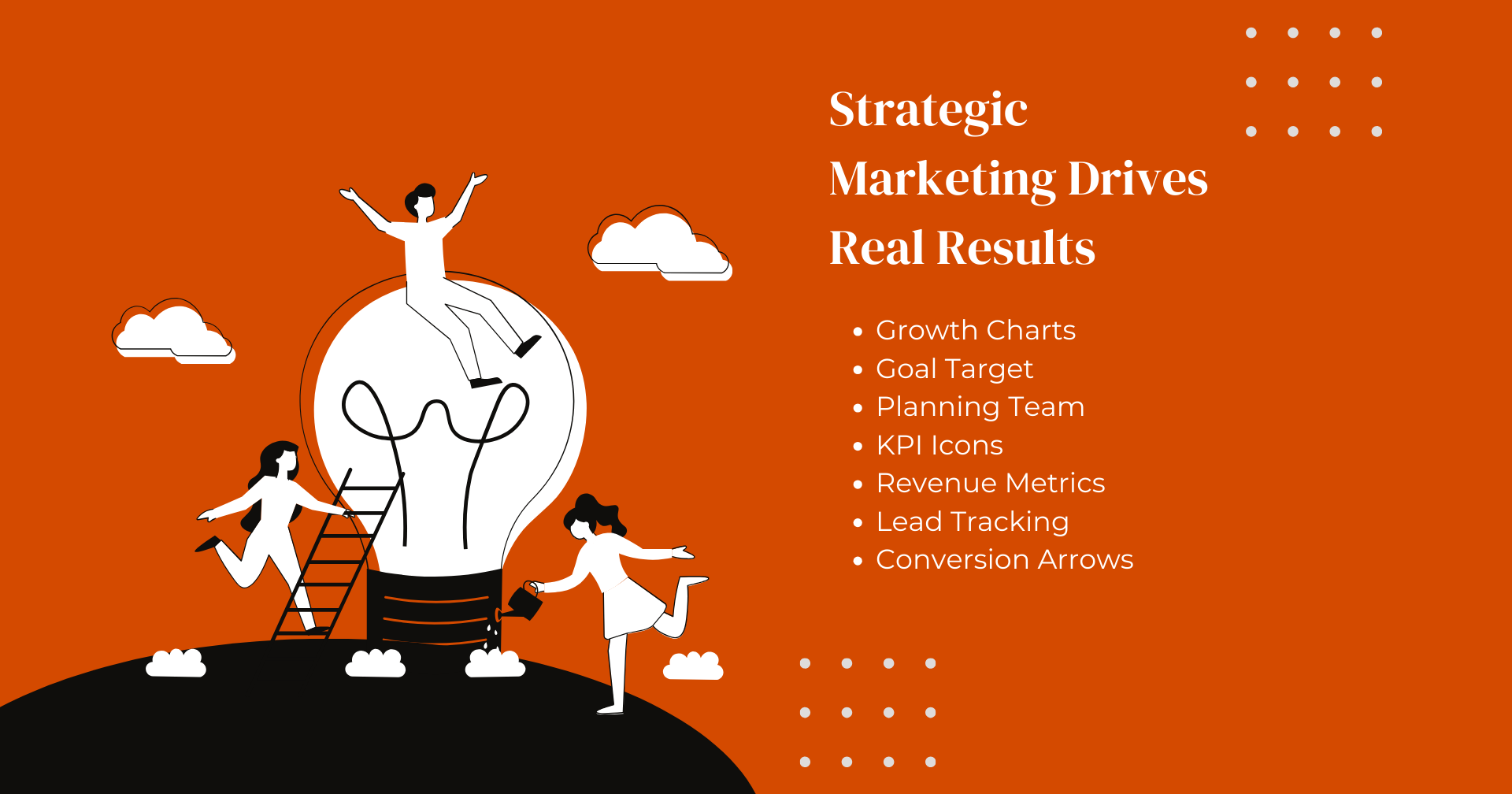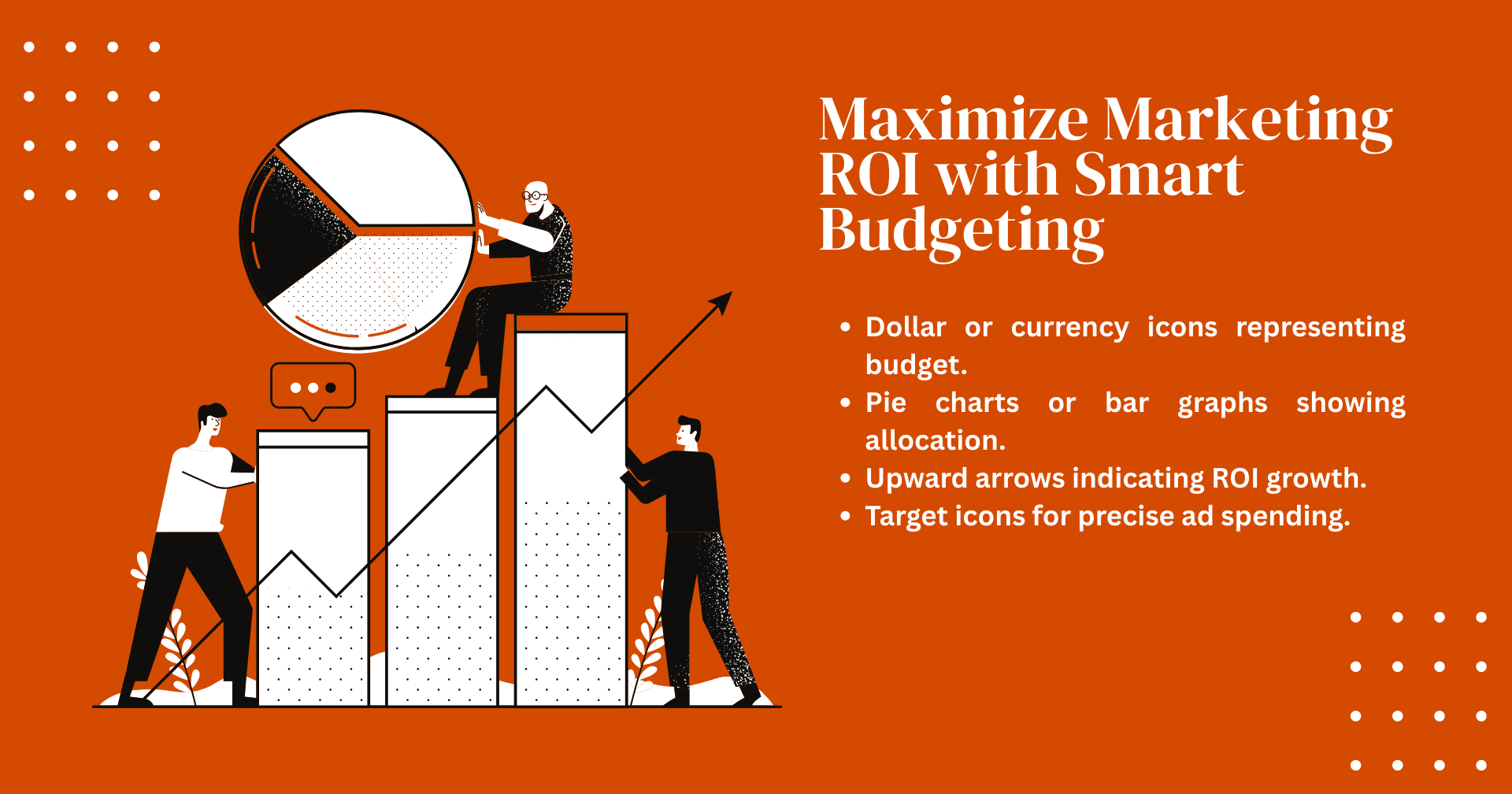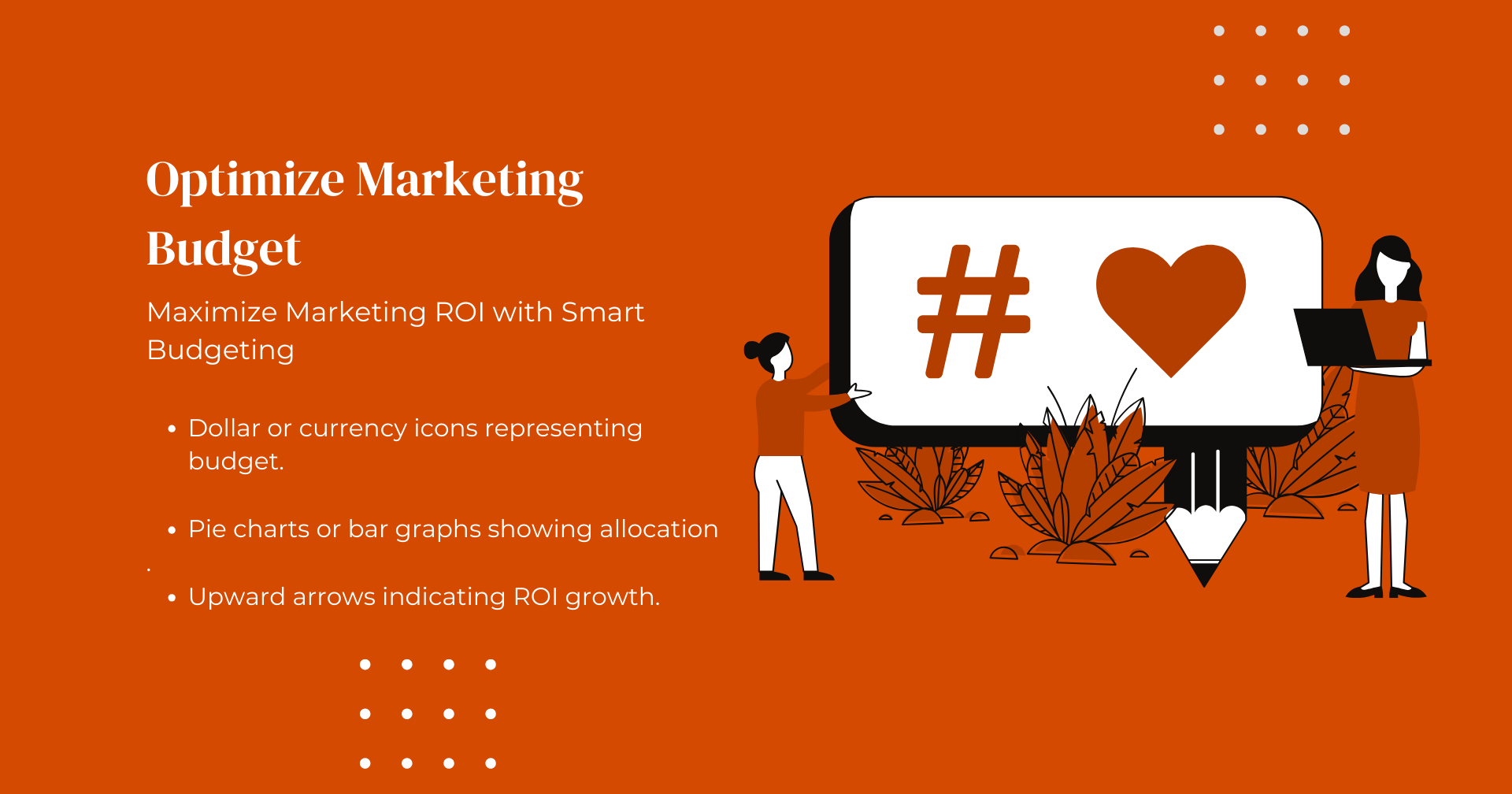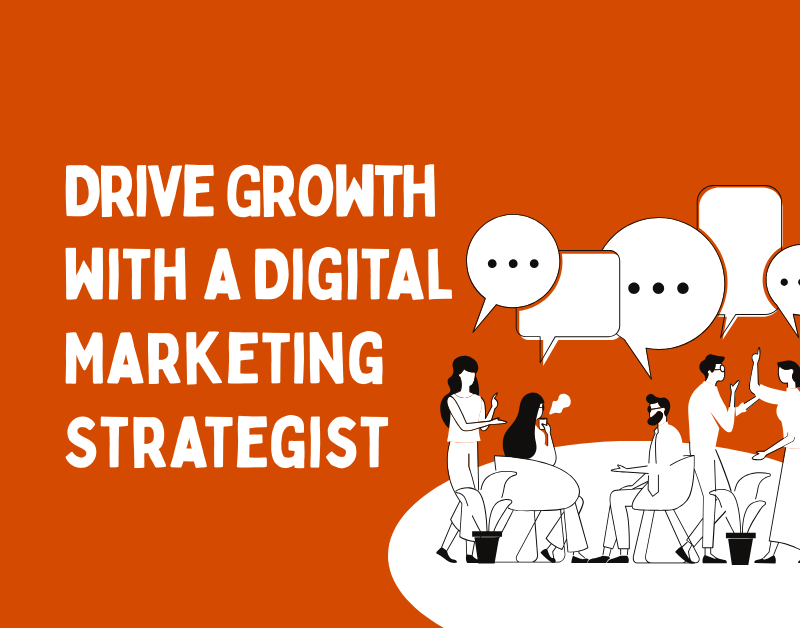Introduction
In the age of digital transformation, having a presence online isn’t just an advantage—it’s a necessity. According to recent studies, 97% of consumers search online for local businesses, yet many companies still underestimate the value of having a clear digital direction. While hiring a freelancer for ads or posting occasionally on Instagram might seem sufficient, real growth and measurable success come from a well-executed strategy. This is exactly what a digital marketing strategist brings to the table.
A digital marketing strategist isn’t just another team member—they are the core driver of digital success, responsible for planning, execution, analysis, and optimization across every marketing channel. Research shows that businesses with documented strategies are 538% more likely to report success than those without. Whether you’re a local brand searching for a digital marketing strategist near me or a global enterprise, investing in strategic marketing leadership can transform your future.
Role of Digital Marketing Strategist
To fully appreciate why a digital marketing strategist is essential, it helps to understand the depth and breadth of their role. Many business owners ask, “What is a digital marketing strategist?” Simply put, this role is about vision and execution. They oversee your entire digital ecosystem—ensuring every marketing channel (social media, SEO, paid ads, email, content) is synchronized to reach a unified goal.
Data from HubSpot shows that companies leveraging integrated marketing strategies experience up to 67% higher lead generation rates compared to those without a coordinated approach. This demonstrates the tangible value a skilled digital marketing strategist brings to any organization.
A digital marketing strategist acts as the central hub for all marketing efforts. Whether working with an in-house team, collaborating with a content marketing strategist, or managing external agencies, they ensure that messaging, campaigns, and branding remain consistent across all channels.
Their work is highly structured and data-driven. No initiative is random or untracked; every campaign is designed with measurable goals, key performance indicators (KPIs), and clearly defined objectives. This focus on measurement ensures that marketing efforts contribute directly to business growth and provide a solid return on investment (ROI).
Digital marketing strategists also identify opportunities for optimization. By analyzing data from multiple sources, including website analytics, social media insights, and email campaign performance, they can make informed decisions that refine targeting, messaging, and creative execution.
Ultimately, a digital marketing strategist ensures that marketing resources are used efficiently and effectively. Their strategic oversight not only improves lead generation and brand awareness but also strengthens customer engagement, loyalty, and long-term business success.
Strategy Outperforms
One of the biggest mistakes small and medium-sized businesses make is relying solely on tactics. Posting a blog, running a few Instagram ads, or starting an email list—without any overarching plan—results in fragmented growth and wasted effort. Studies indicate that 70% of marketing budgets are wasted on uncoordinated campaigns.
A digital marketing strategist focuses on long-term outcomes, ensuring each campaign supports the business model. They define who your audience is, what message resonates with them, which platforms to prioritize, and how to measure success.
Companies that work with a digital marketing strategist typically see 25% better campaign performance compared to those running ad-hoc marketing efforts. Without this strategic vision, execution may generate activity—but not meaningful results.
Marketing That Aligns with Business Goals
Too often, marketing gets disconnected from the business’s core objectives. Research shows that 64% of marketing teams struggle to prove ROI because their efforts aren’t aligned with business goals. A digital marketing strategist makes sure that all efforts—whether led by a web marketing strategist, social media manager, or content writer—are aligned with clear, measurable outcomes.
Rather than focusing on vanity metrics like likes or impressions, a digital marketing strategist shifts the spotlight to growth-oriented KPIs like:
- Qualified leads (businesses see 80% increase with proper lead qualification)
- Cost per acquisition (strategic planning can reduce CAC by up to 50%)
- Revenue per customer (strategic customers have 23% higher lifetime value)
- Conversion rates (strategic optimization improves conversions by 200-300%)
Whether you’re a small business owner or working with the best SEO company or local SEO company, the key to results is this alignment between marketing actions and business goals that a digital marketing strategist provides.

Navigating Rapidly Changing Digital World
Digital platforms evolve constantly. Google makes over 3,200 algorithm updates per year, new social platforms rise, and user behavior shifts in unexpected ways. If your business isn’t adapting, it’s falling behind. Companies without strategic digital leadership lose 23% of their market share within two years.
A skilled digital marketing strategist, whether in-house or through an SEO consultant, helps your brand stay relevant. They proactively:
- Test new digital tools and platforms (early adopters see 40% better engagement rates)
- Monitor algorithm and search trend changes (strategic monitoring prevents 60% of ranking drops)
- Re-optimize strategies based on performance (continuous optimization improves ROI by 35%)
Especially for companies investing in growth through platforms like Google Ads, LinkedIn, or Instagram, having a digital marketing strategist ensures adaptability and sustainability in an ever-shifting landscape.
Multi-Channel Consistency
Modern customers interact with brands across an average of 7.5 channels before making a purchase. A digital marketing strategist ensures consistency in voice, visuals, and value across all these channels. Consistent branding across all channels increases revenue by up to 23%.
In today’s digital landscape, customers engage with brands across multiple touchpoints before making a purchase. Research indicates that the average consumer interacts with a brand on approximately 7.5 different channels, including social media, email, search engines, websites, and paid advertisements. This multi-channel behavior makes consistency across platforms more important than ever.
A digital marketing strategist plays a crucial role in maintaining this consistency. They ensure that the brand’s voice, visuals, messaging, and value propositions are uniform across all channels. When users encounter a coherent brand experience, it builds trust and recognition, which can significantly influence purchasing decisions.
Consistent branding across multiple channels also drives measurable business results. Studies show that organizations with unified messaging and visuals across all marketing platforms can increase revenue by up to 23%. This demonstrates that alignment isn’t just about aesthetics—it has a direct impact on growth and profitability.
This unified approach extends to all campaigns and collaborations. Whether you are working with a content marketing strategist to create blogs and social posts, or coordinating with an SEO agency to launch paid ad funnels, the digital marketing strategist ensures that every piece of content reflects the same brand identity.
Customers expect a seamless and cohesive experience across all interactions. Any disconnect between channels can create confusion, reduce engagement, and diminish trust. A digital marketing strategist prevents these inconsistencies, making sure that every touchpoint reinforces the brand promise and drives meaningful results.
Ultimately, multi-channel consistency is about creating a reliable and professional brand experience. By guiding strategy and execution across all platforms, a digital marketing strategist ensures that your brand remains recognizable, credible, and compelling in a crowded digital marketplace.
Data-Driven Optimization for Ongoing Growth
Marketing is no longer a guessing game. Everything can be tracked—from clicks and views to email opens and heatmap movements. A digital marketing strategist uses analytics to refine campaigns and improve ROI. Data-driven companies are 5x more likely to make faster decisions and 6x more likely to be profitable.
Rather than blindly boosting posts or spending on random keywords, a digital marketing strategist ensures your marketing is continuously optimized based on:
- Audience engagement (strategic targeting improves engagement by 150%)
- A/B test results (proper testing increases conversion rates by 49%)
- Conversion funnel behavior (funnel optimization can boost sales by 300%)
This iterative process results in long-term growth, especially when backed by a best SEO agency that understands performance metrics and works alongside your digital marketing strategist.
Smarter Budget Allocation
Without strategy, marketing budgets are easily wasted. Research indicates that businesses waste 37% of their marketing spend on ineffective channels. A digital marketing strategist makes sure that funds go to what’s working—cutting losses quickly and scaling successful tactics. This type of guidance is critical whether you’re running in-house ads or working with an external SEO consultant. When guided by a digital marketing strategist, smart strategy leads to:
- Better ad targeting (precision targeting reduces costs by 45%)
- Efficient content creation (strategic content performs 13x better)
- Reduced cost per conversion (strategic optimization cuts CPC by 60%)
- Measurable improvements in campaign ROI (strategic campaigns see 400% better ROI)
In many cases, a digital marketing strategist saves businesses thousands by avoiding ineffective marketing decisions. Companies report saving an average of $50,000 annually on wasted ad spend when working with strategic leadership.

Building a Stronger Brand Identity
Marketing isn’t just about promotion—it’s about building a brand that people recognize, trust, and emotionally connect with. A digital marketing strategist plays a vital role in shaping that identity. Consistent brand presentation across all platforms increases revenue by up to 23%, and brands with strong identity see 20% higher customer retention rates.
They help define and express your brand’s voice, tone, and values across every touchpoint—ensuring that your business isn’t just visible, but memorable. In today’s crowded digital space, where consumers are exposed to over 5,000 brand messages daily, consistency is key.
A digital marketing strategist ensures your message remains aligned whether it’s displayed on your website, social media, ad campaigns, or email newsletters. From the words you choose to the imagery you use, every element contributes to how your brand is perceived.
This becomes especially important when multiple people or teams are involved in marketing—without a digital marketing strategist, branding can quickly become fragmented or diluted.
For businesses in competitive industries—such as SaaS, professional services, or product-based eCommerce—a digital marketing strategist helps you rise above generic messaging. They craft a voice that cuts through the noise and builds trust over time. Strong brand identity can increase customer loyalty by 306% and boost purchase intent by 89%.
Optimizing the Complete Sales Funnel
Many businesses focus heavily on driving traffic—but fail to convert it into actual revenue. The average conversion rate across industries is only 2.35%, meaning 97% of website visitors leave without taking action. Attracting visitors is only the first step. Without a clearly defined and optimized funnel, even high-performing campaigns can result in underwhelming outcomes. This is where a digital marketing strategist plays a pivotal role.
A digital marketing strategist maps out the entire customer journey, from the very first interaction to post-purchase engagement and retention. They don’t just look at how people find your brand—they evaluate what happens at every stage with precision. Companies with optimized sales funnels see 79% better conversion rates and 45% higher customer lifetime value.
For businesses involving services like website application development or operating as an eCommerce website development company, sales funnels likely include multiple high-consideration steps. A digital marketing strategist helps fine-tune content to address buyer objections, enhance trust signals, and establish authority at every stage.
By tracking funnel analytics, user behavior, and conversion metrics, a digital marketing strategist continuously refines the process—turning missed opportunities into measurable wins. Strategic funnel optimization can increase revenue per visitor by 223%.
Choosing the Right Platforms
Not every business needs to be on every social media platform. With over 4.8 billion social media users spread across dozens of networks, selecting the right channels is essential for efficient marketing. Being present on every platform can dilute resources and reduce effectiveness, while focusing on the most suitable platforms ensures better engagement and ROI.
A digital marketing strategist plays a critical role in identifying the channels that will deliver the highest impact for your specific audience. They analyze demographics, user behavior, and engagement trends to determine where your target customers are most active and receptive. This data-driven approach prevents wasted effort on platforms that are unlikely to generate meaningful results.
The strategist also aligns platform selection with business goals. Whether your focus is brand awareness, lead generation, e-commerce sales, or customer retention, they choose channels that complement your objectives. This can include SEO, PPC, email marketing, social media campaigns, or video marketing, ensuring that every tool supports your overarching strategy.
Businesses that concentrate on 2-3 strategic platforms rather than trying to maintain a presence everywhere often achieve significantly higher engagement. Studies show that this focused approach can improve engagement rates by up to 67%, demonstrating the value of strategic prioritization over broad but shallow efforts.
Coordination across channels is equally important when working with external partners. For example, partnering with the best SEO company or a highly-rated local SEO company is more effective when a digital marketing strategist ensures messaging, tone, and content are consistent. This synergy maximizes the impact of campaigns and prevents fragmented marketing efforts.
Ultimately, choosing the right platforms is about working smarter, not harder. By focusing on where your audience truly engages and ensuring consistent messaging across channels, a digital marketing strategist helps businesses achieve measurable results while optimizing time and resources.
Long-Term Campaign Planning
While short-term wins can provide immediate satisfaction, sustainable business growth depends on a long-term strategic vision. Companies that implement marketing plans spanning three or more years tend to grow 30% faster than those focused solely on quarterly results. A digital marketing strategist ensures your campaigns are designed with both immediate impact and future growth in mind.
Strategic campaign planning involves mapping out key initiatives such as seasonal promotions, product launches, content calendars, and retargeting campaigns. By anticipating these events, businesses can allocate resources efficiently and ensure that marketing efforts are coordinated across all channels for maximum effect.
They keep your team organized, your budget balanced, and your execution consistent. Strategic planning prevents the feast-or-famine cycle that affects 68% of small businesses. Whether your business is service-based or product-driven, this foresight delivers stable, predictable growth.

Internal Team Collaboration
Digital marketing often involves multiple stakeholders—graphic designers, content writers, SEO teams, web developers. Without centralized leadership, productivity drops by 21% due to poor coordination. A digital marketing strategist ensures everyone works together, following a unified plan.
They provide creative briefs, set timelines, and hold teams accountable. Teams working under strategic leadership complete projects 45% faster and with 60% fewer revisions. Whether in-house or agency-based, this leadership keeps projects on track and goals aligned.
Competitive Edge Over Rivals
Many of your competitors are likely investing in digital ads, SEO, or content—but fewer are doing it strategically. Only 37% of small businesses have a documented digital marketing strategy, creating a massive opportunity. A digital marketing strategist helps you identify market gaps, position your brand effectively, and outmaneuver your competitors.
Businesses with strategic digital leadership capture 40% more market share than those without. This is especially important in local markets where you’re searching for a digital marketing strategist near me or comparing the best SEO agency in your region.
Empowering Small Businesses to Compete
Even small teams can execute powerful, results-driven marketing with the right guidance. A digital marketing strategist equips you to think and operate like a big brand—without requiring a massive team or bloated budget. Small businesses with strategic guidance compete effectively against companies 10x their size in 73% of digital marketing scenarios.
They help you develop a clear message that resonates with your target audience, craft high-impact content tailored to your market, and implement strategies that drive measurable growth. Strategic small businesses see 126% better lead generation than those without professional guidance.
For small businesses, where every dollar and decision counts, the guidance of a digital marketing strategist can be transformational. They assess your current digital presence, identify key areas for improvement, and build a foundation that allows your brand to grow sustainably. Small businesses working with strategic professionals achieve profitability 67% faster than those going it alone.
Conclusion
Today, digital success isn’t just about having a presence online—it’s about having the right strategy behind that presence. With 4.95 billion internet users and digital ad spending reaching $645 billion globally, the competition for attention is fiercer than ever.
Whether you’re a startup, a service-based company, or an ecommerce website development company, investing in a digital marketing strategist gives you a massive competitive advantage.
They provide the vision, leadership, and data-backed decision-making you need to grow with confidence. From optimizing SEO and email marketing to scaling paid ads and improving user experience, a digital marketing strategist becomes your brand’s most valuable growth partner. Companies investing in strategic marketing leadership see an average ROI of $42 for every dollar spent.
If you’re serious about building an impactful, profitable online presence—don’t just hire marketers. Hire a digital marketing strategist who can lead the way to measurable, sustainable growth.


